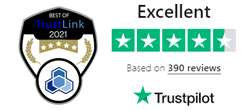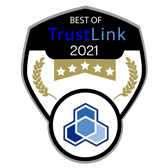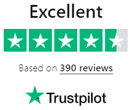A comprehensive guide to debt consolidation might not hold your hand through the entire process, but it can definitely point you in the right direction. Debt consolidation can be a difficult process for anyone. However, preparing for it can help.
It is essential to keep in mind that organizing your debts in the right manner can help you reduce them considerably. We understand that organizing your debt might not reduce them directly. However, it can definitely allow you to keep up with them better, which reduces them over time.
One great way to organize your debts is by consolidating them. This can reduce your interest rates and simplify the payment procedure for you each month. Here’s a much-needed guide for debt consolidation that can help you get through the process;
What Is Debt Consolidation?
Defining debt consolidation is essential before you move on to consolidating all of the debts you have accumulated. Debt consolidation combines more than one high-interest debt into one single, more manageable loan or payment plan.
This action follows a basic goal: simplifying your financial life, reducing your interest rates, and avoiding organizing more than one debt payment plan. Since juggling various creditors and due dates can lead to extra fees and added costs if you forget to pay your debt on time, consolidation can help avoid this.
How Can Debt Consolidation Help?
Here are some of the benefits that debt consolidation can provide you;
Lower Interest Rates
One of the main advantages that pull people towards the consolidation of debt is the potential to receive a lower interest rate than the one you have been paying. High interest rates, especially those associated with payday loans, can eat away at your monthly income.
The consolidation of debt can reduce your interest rate as you organize all your debt in a single loan so that you don’t have to pay multiple interest rates.
Simplified Repayments
This can also allow you to deal with reduced monthly payments. You can also let go of the worry of possibly missing out on your monthly installment, as it is much easier to remember paying one monthly loan.
Improved Credit Score
Once you start consolidating all your loans and adding your repayments each month, your credit scores jump by a few points with each installment. Consistent payments that are received on time can greatly impact this score and help you receive better interest rates in the future.
Methods of Debt Consolidation
There are several ways you can use to consolidate your debt. Each one of those methods comes with advantages and disadvantages that may appeal to some and not favor others. Thus, it is important to choose the one that fits your financial situation best;
Debt Consolidation Loans
Debt consolidation loans are those personal loans usually designed to bring together multiple debts. These loans come with fixed rates of interest and a specific term you use to pay your existing debts. Each monthly payment is supposed to pay off those consolidated debts.
Balance Transfer Credit Cards
Debt consolidation can also be achieved by consolidating your loan into one credit card loan. Since some balance transfer credit cards offer you an introductory period interest rate of 0%, this can work in your favor.
Home Equity Loans
If you’re a homeowner, you can also choose to dip into your home’s equity through a Home Equity Loan. This allows you to borrow against your home’s value to pay off your high-interest debts. However, this may mean risking losing your home if you default on the loan.
Debt Management Plans
This is perhaps the best way to consolidate your debt. Contact a debt management company if you don’t know which method suits your financial position best. Credit counseling agencies can negotiate loan terms to help you achieve a lower interest rate and consolidate your payments into one monthly sum.
How to Consolidate Your Debt
Debt consolidation, be it credit card debt or payday loans, can be perfected through a few simple steps. Here’s how you can achieve perfect debt consolidation;
- Assess Your Debt: Gather information about all your debts, their interest rates, and required monthly payments.
- Explore Your Options: Research and compare the different debt consolidation options mentioned earlier, or contact a debt consolidation company.
- Choose the Right Method: This method best suits your financial situation and goals.
- Consolidate Your Debts: Use the loan or credit card to pay off your existing debts.
- Make Timely Payments: Ensure you make your monthly payments on time to avoid further financial stress. You can achieve this through automatic payments.
- Stick to Your Budget: Create a budget that accommodates your monthly payment and prevents new debt accumulation.
- Monitor Your Progress: Regularly review your finances to ensure you’re on track to becoming debt-free.

Final Thoughts
Debt consolidation is a powerful tool often used to regain control of your finances and achieve a debt-free future. This can achieved through organized debts that keep your peace of mind first.
By understanding the benefits, drawbacks, and various methods available, you can make informed decisions and take steps toward financial stability.
However, it is important to remember that debt consolidation is just one small part of the puzzle; responsible financial management and budgeting are equally essential for long-term success. This financial management can be achieved through financial literacy that a debt consolidation company can provide.
If you need clarification regarding which debt consolidation option to go for, we recommend contacting Solid Ground Financial. Our experienced professionals can guide you toward the best option that provides you with the best interest rate for your unique situation!




